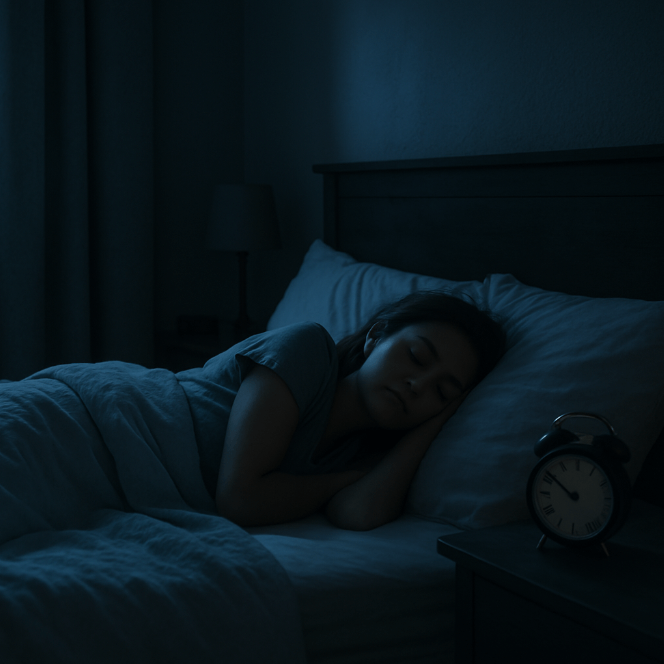We’re constantly searching for ways to sleep better. Maybe you’ve tried melatonin, blackout curtains, or that sleep playlist your friend swears by. But there’s one incredibly effective, science-backed method that most people still overlook:
Go to bed and wake up at the same time every day.
That’s it. It sounds almost too simple - but a consistent sleep schedule can transform how quickly you fall asleep, how deeply you rest, and how refreshed you feel when you wake up. It might just be the best sleep hack you’re not using yet.
What Is a Consistent Sleep Schedule?
A consistent sleep schedule means going to bed and waking up at the same time - every day. That includes weekends, holidays, and any day you feel like sleeping in. The key isn’t perfection, but predictability.
It’s not just about how many hours of sleep you get - though 7–9 is ideal - but about when those hours happen. A steady routine helps your body fall into a rhythm, which makes sleep come more easily and naturally.
The Science Behind Sleep Rhythms
Your body runs on an internal 24-hour clock called the circadian rhythm. It’s controlled by a part of your brain called the suprachiasmatic nucleus (say that five times fast), which responds to cues like light and darkness, temperature, and even eating patterns.
When your sleep schedule is regular, your circadian rhythm becomes finely tuned - it knows when to release melatonin to help you wind down and when to trigger cortisol to help you wake up. But if your schedule is all over the place, your internal clock gets confused, making it harder to fall asleep or feel alert during the day.
Think of your circadian rhythm like a symphony - when everyone’s in sync, it’s beautiful. But one offbeat instrument throws everything out of tune.
Benefits of a Consistent Sleep Schedule
Creating a steady sleep-wake rhythm pays off in ways that go far beyond just “feeling rested.”
- Fall asleep faster: Your brain knows what to expect and starts to power down on cue.
- Wake up naturally: No more hitting snooze ten times.
- Deeper, higher-quality sleep: Your body can move more easily through restorative sleep cycles.
- Improved focus and mood: You’ll feel sharper and more emotionally balanced.
- Stronger immune system: Quality sleep strengthens your body’s defenses.
- More energy all day: You won’t need that third cup of coffee just to function.
Bonus: It’s also been linked to lower levels of anxiety and depression over time.
Common Barriers (and How to Overcome Them)
Let’s be real - life is messy. Here are a few things that tend to throw people off track, plus simple ways to stay (mostly) consistent:
Social Jet Lag
You go to bed at 10 p.m. during the week… then stay up until 2 a.m. on Saturday. That Monday morning crash? Totally avoidable.
Fix it: Try to keep weekend bed and wake times within an hour of your weekday schedule. Flexibility is fine - just don’t swing wildly.
Inconsistent Work Shifts
If your job or lifestyle changes weekly, full consistency might not be realistic.
Fix it: Create a flexible anchor - like waking up 90 minutes before your shift, or sticking to a consistent bedtime routine, even if the time changes.
Late-Night Screen Time
TikTok, texts, and endless episodes make it easy to lose track of time.
Fix it: Set a “tech bedtime” for your devices. Switch to something analog like reading or journaling 30–60 minutes before bed.
How to Start Your Own Sleep Routine
Here’s a gentle way to build a sleep schedule that actually sticks:
- Choose a wake-up time you can maintain - and build your bedtime around it.
- Aim for 7–9 hours of sleep. Count back from your wake-up time to find your bedtime window.
- Create a calming wind-down routine. This might include dim lighting, stretching, herbal tea, or quiet reading.
- Stick with it for a few weeks. Your body needs time to adjust - but once it does, it’ll feel automatic.
🌙 Pro tip: If you can’t fall asleep right away, don’t lie in bed tossing and turning. Get up and do something relaxing until you feel sleepy, then try again.
Conclusion
The best part about a consistent sleep schedule? It doesn’t cost a thing - but the benefits are priceless. Better rest, clearer focus, and more energy are all within reach - no supplements or fancy gadgets required.
At Slumberite, we believe good sleep starts with small, consistent habits. Whether it’s calming guides or tools like 3D Eye Masks to support your wind-down time, we’re here to help you rest better - because when you sleep right, you live better.



Leave a comment
This site is protected by hCaptcha and the hCaptcha Privacy Policy and Terms of Service apply.